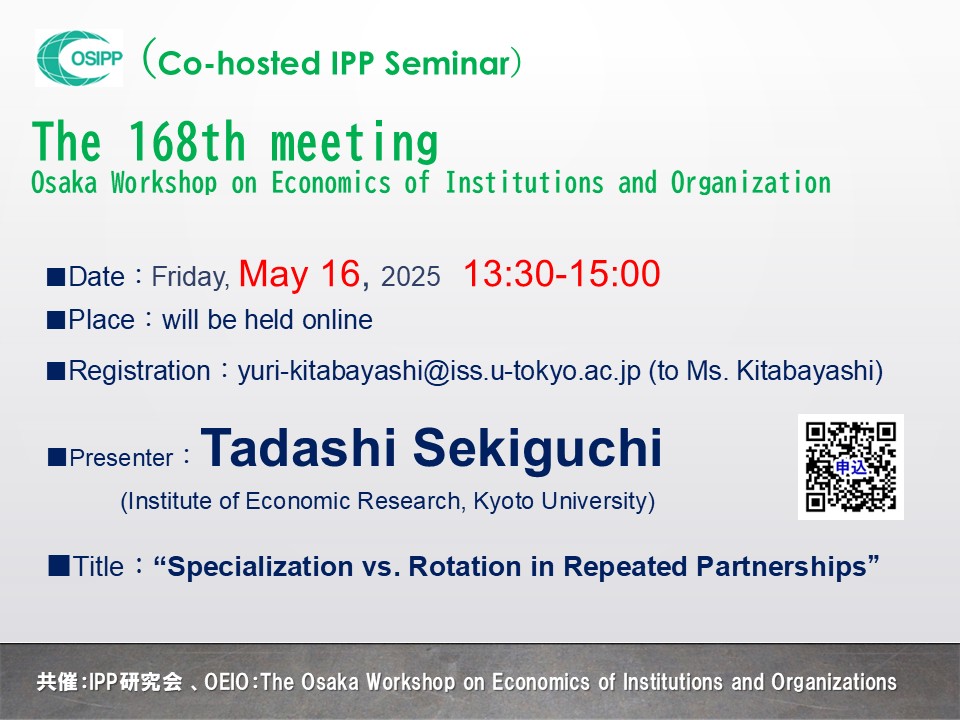
- Pre-book only
- Online events
The 168th meeting jointly organized with International Public Policy Seminar
Intended for |
|
|---|---|
Date | 2025.5.16 Fri 13:30 - 15:00 |
Venue |
|
How to apply | Please contact Ms. Kitabayashi to the email address below |
Contact | Ms.Kitabayashi at the Institute of Social Science, The University of Tokyo |
The Osaka Workshop on Economics of Institutions and Organizations, OEIO, meets every month to exchange research ideas on institutional and organizational economics. Participants include both people specialized in theoretical research and those in empirical research. Topics of meetings might be about microeconomic theory, macroeconomic theory, or economic history..., whatever on institutional and organizational economics.
Presenter:Tadashi Sekiguchi (Institute of Economic Research, Kyoto University)
Title: “Specialization vs. Rotation in Repeated Partnerships”
Abstract: In ongoing organizations, efficiency or total payoff maximization typically requires different members to make different types of efforts. The present paper studies how the organizations should allocate those different tasks to their members over time. We formulate a model of repeated partnerships consisting of homogeneous partners where efficiency is attained only by asymmetric stage action profiles. We focus on the efficient equilibrium behavior at the minimum discount factor under which an efficient repeated game equilibrium exists. A key feature which decides the equilibrium behavior is the relationship between the tasks and their associated degrees of moral hazard. In the case of two partners, we show that, depending on the relationship, any efficient equilibrium at the minimum discount factor exhibits random rotation, where the members switch their roles over time with a uniquely given probability. The probability can be either zero or one, so that the equilibrium exhibits pure rotation, where the role switching occurs every period on the path, or specialization, where the switching never occurs. This result explains both specialization and rotation, phenomena frequently observed in reality, from the viewpoint of incentives. We generalize those observations to the case of three or more partners.